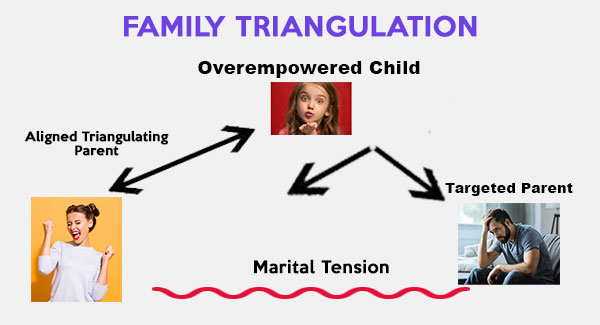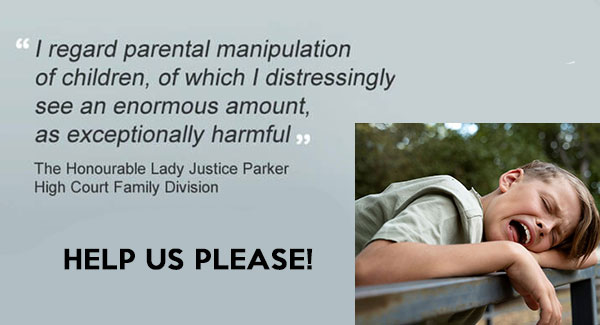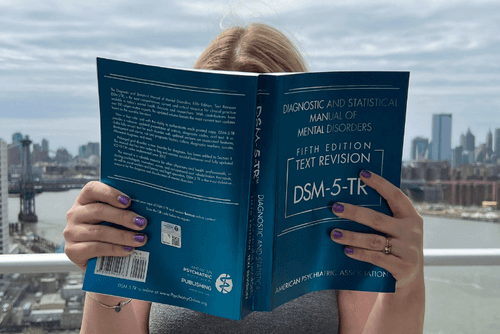Danielle Pollack was at it again – obsessed with her meritless mission to deny the child- abusive family phenomenon of parental alienation. She put on a fallacious, self-serving spectacle during a NPR radio interview on February 6, 2025.
Pollack cannot help herself but to propagate discredited, bizarre tales about child psychiatrist, Richard Gardner.
Pollack cannot help herself but to engage in a deceitful mission analogous to the delusional mission of Don Quixote by attacking the labels of – not the substance of – parental alienation syndrome (PAS) and parental alienation (PA).
Here I will expose Pollack’s lies, which she tenaciously refuses to surrender despite overwhelming evidence for the reality of parental alienation and the acuity of Dr. Gardner.
What is Parental Alienation?
Parental alienation is an observable, child-abusive family phenomenon. In this phenomenon, a parent unjustifiably brainwashes her or his child against the other parent and coercively manipulates the child to reject that parent.

The brainwashing/manipulating parent is known as the alienating parent, and the rejected parent is known as the alienated parent.
The alienating parent’s behaviors are “unjustifiable” because the alienated parent does not present a risk to their child. The alienating parent prevents contact between the alienated parent and their child for selfish, hurt, and/or vindictive reasons.
The alienated parent does nothing that would cause an uninfluenced child to override the child’s powerful instinct for survival to have and need a parent.
FURTHER READING: Parental Alienation – All You Need to Know
Rejection of a Parent is Anti-Instinctual
Rejection of a parent is anti-instinctual behavior – so anti-instinctual that even severely physically abused children do not reject their abusive parents. To the contrary, severely physically abused children seek attachment-enhancing behaviors to their abusive parents.
Alienated children must therefore must therefore be severely coercively manipulated by their alienating parent in order to override their instinctual need and love for the other parent.

FURTHER READING: The Instinct For a Parent Violated in Parental Alienation
Danielle Pollack – Out of Touch With Reality & Promulgating Falsehoods
Pollack and her minions have lost touch with reality and are knowingly and deliberately promulgating falsehoods about parental alienation.
Pollack and her minions accomplish this by focusing on parental alienation’s current “label” – which is merely a theoretical term intended for common identification purposes only.
Pollack and her minions deceptively sidestep the phenomenon of or the family dynamics occurring in parental alienation because it is supported by overwhelming psychiatric and scientific evidence.
Notice they never provide their description of parental alienation. It is easy to attack what one does not define!

There is overwhelming recognition of the phenomenon of parental alienation in psychotherapy/family therapy history and in custody jurisprudence – history that is consciously ignored by Pollack and her minions.
FURTHER READING: Parental Alienation – Proven Truth or Myth?
The Phenomenon of Parental Alienation in Family Psychotherapy History
The phenomenon of parental alienation has been recognized in the psychiatric community at least as early as the 1950s. The phenomenon was then labeled “triangulation” by the child psychiatrists who founded the family therapy movement.
Triangulation spawned the birth of the family therapy movement in the 1950s when its founding child psychiatrists determined that the psychosis in their child patients had been caused by the family phenomenon they subsequently labeled “triangulation.”

FURTHER READING: Parental Alienation Truth Revealed by an Expert
The Phenomenon of Parental Alienation in Judicial History
The dynamics occurring in the phenomenon of parental alienation go back more than 200 years. (Bernet, 2010 Parental Alienation, the DSM-5, and the ICD11; Lorandos & Bernet, 2020, Parental Alienation: Science and Law).
Demosthenes Lorandos(2020):
“This study was designed to examine the extent to which courts in the United States have found the concept of parental alienation material, probative, relevant and admissible. Thirty-four years of cases were found with a WESTLAW query and analyzed. Cases were selected for study only if the record reflected that a judge or an independent expert found the concept of parental alienation to be of value in the litigation.
Results illustrate increasing awareness of the concept and document its admissibility in every one of the United States. The numbers, sex of the alienating parent and prevalence of significant custody changes are discussed. Limitations inherent in this form of quantitative analysis are also discussed with recommendations for future research.” (abstract introduction)

The Specious Anti-Syndrome Claim About Parental Alienation Syndrome (PAS)

The erroneous anti-syndrome claim about PAS that is popularly perpetuated is based upon Kelly and Johnston (2001) deceptively distorted DSM syndrome definition.
They made this distorted definition in their article entitled, “The Alienated Child: A Reformulation of Parental Alienation Syndrome.”
Here is the true DSM syndrome definition:
“A grouping of signs and symptoms, based on their frequent co-occurrence that may [italics ours] suggest a common underlying pathogenesis, course, familial pattern, or treatment selection.” (p.830)
Here is Kelly and Johnston’s distorted DSM syndrome definition:
“Because there is no “commonly recognized, or empirically verified pathogenesis, course, familial pattern, or treatment selection” of the problem of PAS, it cannot be properly considered a diagnostic syndrome of the American Psychiatric Association.” (p. 249)
What Kelly and Johnston claim to be the necessary criteria of the DSM syndrome definition is false—so utterly false that it meaningfully misrepresents the definition of a syndrome. Each factor subsequent to the word “may” is clearly optional – but Kelly and Johnston erroneously claim the factors are required criteria.
FURTHER READING: Understanding Parental Alienation Syndrome and the DSM-5
Who Is the True Child Psychiatrist, Richard Gardner, MD
Pollack and her minions defame and dismiss the highly revered child psychiatrist, Richard Gardner. Dr. Gardner was board certified in adult psychiatry, child psychiatry, and forensic psychiatry. He served as prestigious head of the Department of Medicine at Columbia University.
Dr. Gardner wrote numerous books and articles on child development, child therapy, and child custody. At least 23 of his articles on parental alienation syndrome were published in peer-reviewed journals.
Dr. Gardner was a fierce protector of children, which is why he advocated for the reliance upon science to rule in or rule out allegations of child physical and sexual abuse.
And it was exactly because of the profound harm to children from sexual abuse by a parent that Gardner was so concerned with accurate diagnosis.
Dr. Gardner was keenly aware that, if a child falsely believes having been sexually abused by a parent, the child will suffer from the same risk factors for PTSD and other psychiatric conditions as if the abuse had actually occurred.
Note, for example, that when anyone falsely accuses Dr. Gardner of supporting pedophilia, they never provide a single quote from Gardner to support this egregiously false claim. Never is Gardner’s actual works quoted when he is criticized.
It is easy to criticize someone when their references are paraphrases and distortions instead of direct quotes within the context of the message.
Conclusion
The child-abusive family dynamics occurring the phenomenon of parental alienation – irrespective of its various labels over time – are consciously denied by Pollack and her minions. They deny the very real family dynamics of parental alienation for self-serving, self-interested, biased purposes.
The best interest of the child requires that focus on labels be rejected so that alienated children can receive timely and effective intervention for the child abuse being inflicted upon them by the alienating parent.


